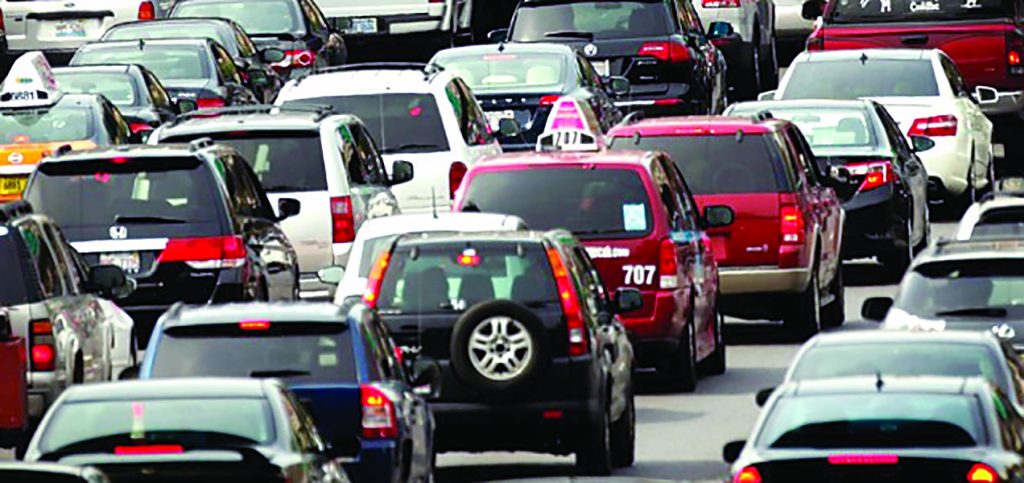In recent months, the Active Transportation Alliance has been urging our regional planning agency to stop giving the green light to road expansion projects that are intended to alleviate congestion, yet end up worsening not just congestion, but climate change, safety, and equity.
At a recent hearing held by the Chicago Metropolitan Agency for Planning (CMAP), Active Transportation Alliance’s Director of Planning David Powe provided testimony on behalf of more than 400 people who responded to an action alert asking leaders to oppose the harmful and destructive roadway expansion plans.
“Evidence shows that adding lanes to expressways and arterial streets does not result in long-term congestion relief for people driving,” said Powe at the hearing. “This is because new capacity is quickly filled up by additional vehicles, leading to more emissions. This is known as induced demand, and it results in numerous negative public impacts.”
Across the country, roadway expansion plans are being stopped in the name of racial equity, climate change, safety, and fiscal responsibility. CMAP, however, plans to add nearly 300 lane miles to our region’s roadways as part of its updated ON TO 2050 plan.
The hearings served as an opportunity for public input on the plan and CMAP’s list of regionally significant projects that are eligible for federal funding.
Active Transportation Alliance has been pushing CMAP to change how it evaluates which projects are eligible for federal funding. Instead of prioritizing driver speed and convenience above all else, CMAP projects should be evaluated by considering their impacts on climate change, equity, and safety.
At the hearing, Powe pointed to CMAP’s identification of climate change as one of its top priorities and its efforts to update how it analyzes greenhouse gas emissions. These roadway expansion projects in the ON TO 2050 plan, he said, contradicts these initiatives that CMAP’s staff has spent so much time developing.
In addition to the environmental, safety, and equity implications, the fiscal responsibility question is also very poignant: Why spend enormous amounts of money on congestion relief projects that lead to the same amount of congestion and sometimes make it worse?
“A study of more than 40 municipal pavement management plans developed by CMAP found that most communities cannot afford to maintain their current roadway networks,” Powe said. “CMAP has also set safety targets for reducing fatal crashes as required by the federal government. However, we are experiencing massive increases in deaths across our region.”
The greater amount of traffic on our roads resulting from these road expansion projects will have the greatest negative impact on communities of color. Pollution from traffic typically poses a danger to the health of Black and Latino communities more than any other.
Active Transportation Alliance recognizes that the power to change how CMAP prioritizes regional projects lies in its governing board and committees. CMAP’s Policy Committee, made up mostly of elected officials and agency leaders, decides how these projects get prioritized and advanced. CMAP’s Board makes the final decision on plan updates that include destructive roadway expansion plans.
In his closing remarks to CMAP staff, Powe said, “Your challenge as our regional MPO is to help communities and their leaders understand the most cost-effective, safe, and beneficial transportation improvements. I ask that your staff convey the importance of these issues to your governing board and policy committee members.”
Despite its own policies that should be pushing CMAP toward eliminating roadway expansion projects, CMAP’s backwards looking approach here highlights how deeply car-centric thinking is ingrained in our local planning and transportation agencies.
You can learn more about CMAP’s regional plan update here.
____________________________
With support from people like you, Active Transportation Alliance works to make our transportation options safer, more sustainable, and more equitable. You can be part of the movement by joining Active Transportation Alliance, renewing your membership, or donating today.

